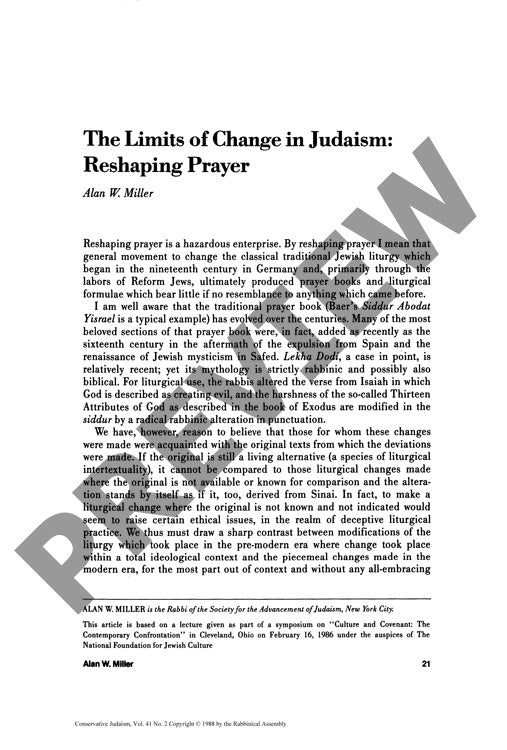The Limits of Change in Judaism Reshapin
Couldn't load pickup availability
Traditional Jewish liturgy operates as an intricate tapestry of biblical quotations, woven together to ensure Jewish cultural survival through diaspora—yet modern attempts to modify these prayers risk unraveling this carefully constructed system. Through critical analysis of liturgical modifications from nineteenth-century Germany and Mordecai Kaplan's Reconstructionist prayer books, including his substitution of Leviticus 19 for Leviticus 18 in the Day of Atonement service, this research reveals the hazards of contemporary liturgical reform. Drawing upon Ferdinand de Saussure's structural linguistics to examine the relationship between language and religious meaning, the analysis demonstrates that over ninety percent of traditional Jewish liturgy consists of direct biblical quotations forming an integrated mythological system. While pre-modern liturgical changes occurred within a comprehensive ideological framework, modern alterations often lack this contextual understanding, disrupting the psychological and theological coherence of the prayers. The principle of *havdalah* (separation), crucial to the liturgy's survival mechanism, becomes compromised through contemporary practices of omission and substitution. Given modern linguistic insights into the ideological nature of language, authentic Jewish prayer requires engagement with original Hebrew and Aramaic texts rather than continued modification, as only these preserve the complete traditional linguistic and mythological framework essential to Jewish religious expression.

More Information
-
Physical Description
-
Publication Information
Published 1988-1989
ISBN
-
Publication Credits
Alan Miller

